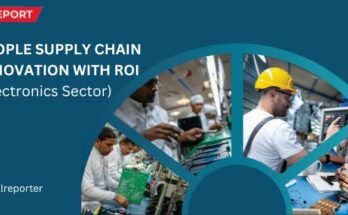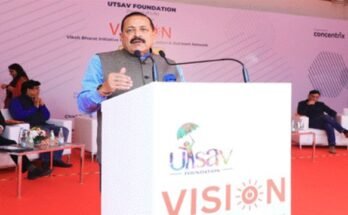We have been doing well with our (lately assumed) best friends – the smartphones. But, Intel India recently unveiled the Impact Assessment Report for Ek Kadam Unnati Ki Aur (EKUKA) which asserts that Personal Computing is imperative and instrumental to bridge the skill gap in India and to empower India towards a digitally literate society. The Report was prepared by Kantar India Market Research Bureau (Kantar IMRB), and endorsed by Indian School of Business.
EKUKA, which incepted in the year 2015, is Intel India’s CSR program in enterprise with the Govt. of India’s Digital India initiative, and it bids to empower the non-urban population of India through Technology-enabled Community Service Centres (CSCs). Intel pursues the endeavours of Unnati in 11 states in which the corporation has opened 100 Unnati Kendras as the cornerstones of innovation at Digital India’s CSCs.
The report elucidates that fundamentals of Digital skills will become the core competency for higher education and for being assimilated into an organized, white-colour service sector – which produces 61% of the world’s GDP – as well as for an era of enhanced content creation, as India progresses to transform into a Knowledge Resource Economy. The report highlights the positive impact of Personal Computers on sophisticated creative skills as well as the essential soft skills and virtues of leadership, confidence (and empathy at a harmonious level). This impact will extend opportunities in academics and career at non-urban locations in India.
India accounts for 18% of the global population, with the largest demographic of youth in the world. With the leaping growth in the Indian economy, the country will require a total of 700 million as skilled workforce by 2022 and their digital literacy will play a humongous role in quality and efficiency of corporations. The National Skill Development Corporation (NSDC) has an ambition of 400 million skilled workforces by 2022.
Mobiles are Fine! But Personal Computing is Critical for a Knowledge Resource in Digital India – Intel India Shares Ek Kadam Unnati Ki Aur Impact Assessment Report India has 220 million smartphone users, most of whom consume more media than create on their smartphones. Through this report, Intel extends that PCs will be phenomenal building blocks in an economy that Creates large volumes of content. Personal Computing will also be crucial to spurt innovation in the fields of medicine, science, and technology for a social tandem.
The report furnishes that 54% of the responded prioritize a PC as their go-to device for education, skill acquiring and content creation while smartphone activities are mostly limited to consumption of content. As a matter of fact, 58% of the content consumed at Unnati Kendras for the purpose of education and self-education is in form of videos and multimedia lessons. Mobiles are Fine! But Personal Computing is Critical for a Knowledge Resource in Digital India – Intel India Shares Ek Kadam Unnati Ki Aur Impact Assessment Report
Under the Ek Kadam Unnati Ki Aur initiative, Intel India has unified with itself nearly 20 public and private sector organizations to reinforce the significance of Personal Computing, especially for the success of skill development and education-related endeavours in the country with a notable boost to the Edtech startups.
You can produce music on an iPad and code on an Android. But PC plays a vital role in attending to the level of sophistication that content creation mostly requires. For example, I wrote this on my iPad but turned back to the PC for editing/processing graphical content, and publishing effectively. From a suspicious angle, it appears to be that manufacturers of Personal (and NOT Portable) Computing devices conspiring to boost sales as consumers migrate to more and more efficient mobile devices. SEO for mobile devices is the next big thing from Google. But the biggest challenge that India faces is the affordability, (and hesitation on a psychological level). PC, (I insist) in my opinion, is more dutiful in resolving these challenges and larger screens open wider windows (literally and metaphorically) of opportunities.
Note: News shared for public awareness with reference from the information provided at online news portals.



